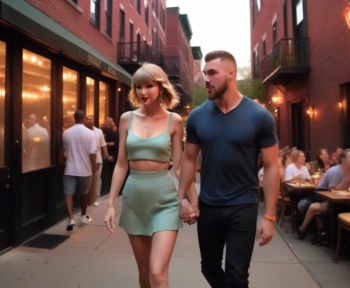Jay-Z and Sean “Diddy” Combs, two monumental figures in the realm of hip-hop, have significantly influenced not just music but also business, philanthropy, and popular culture. Their intertwined careers stretch back to the mid-1990s, marking a partnership that has faced the trials of both time and controversy. Despite their successful collaboration and mutual ventures, recent serious allegations have cast a shadow over their relationship, sparking debates about the nature of their association and its future.
In the early ’90s, during a time rich with hip-hop’s growth, the two icons met through mutual connections in the industry. This meeting sparked an immediate connection, fostering early musical collaborations and joint business ventures. Their synergy was prominent in the track “Do You Like It… Do You Want It…” from Diddy’s 1999 album *Forever*, displaying the potent dynamic between them. These professional engagements went beyond music as they supported each other’s entrepreneurial spirits, evident in Jay-Z’s Roc-A-Fella Records and Diddy’s Bad Boy Records, two powerhouses in the explosive era of hip-hop.
Their collaboration further extended to philanthropy. Notably, in the aftermath of Hurricane Katrina in 2005, they collectively donated $1 million to support affected communities, particularly emphasizing aid to predominantly African American areas severely impacted by the disaster. Their charitable efforts spanned across various domains including education, healthcare, and racial equality, demonstrating their commitment to leveraging their influence for broader societal benefits.
Into the 2010s, Jay-Z and Diddy emerged not just as influential artists but as successful entrepreneurs, both achieving billionaire status through diverse and innovative investments. Their ventures have included stakes in the beverage industry, fashion, entertainment platforms, and technology—highlighting their astute business acumen. Despite their spiralling commercial platforms, their friendship endured publicly, often seen supporting one another’s ventures and sharing stages at significant events like the Puff Daddy and The Family Bad Boy Reunion Tour in 2016.
However, their relationship has recently been tested by a swirl of severe allegations. In March 2024, federal raids on Diddy’s properties sparked legal investigations based on undisclosed charges, hinted to have been initiated from tips by an unnamed informant. The legal turmoil escalated with implications that both Jay-Z and Diddy were involved in a 2000 incident, allegedly assaulting a minor. These allegations have not only resulted in media scrutiny but have also deeply affected their personal and professional relations, with Jay-Z publicly denouncing the claims and distancing from Diddy.
The hip-hop community and their global fanbase stand divided. Some retain their unwavering support, viewing the accusations with skepticism, while others advocate for a thorough and unbiased investigation, emphasizing the necessity for accountability irrespective of celebrity status. These situations reflect on the delicate balance of personal integrity against public image and the challenges it poses to longstanding relationships.
Amid these challenging times, conversations around celebrity power dynamics, influence, and accountability have been stimulated. As Jay-Z and Diddy face these allegations, the discourse extends beyond their personal fallout to broader concerns of ethical standards and the responsibilities of powerful figures in the entertainment industry. It underscores a pivotal moment in hip-hop and cultural history, examining how heroes are perceived and how they navigate through storms of both adulation and adversity.
Despite the clouds of controversy, the impact of Jay-Z and Diddy on music and business cannot be overstated. Their journey from young musicians to moguls of an industry represents a significant narrative of success, innovation, and transformation. Their philanthropic efforts have shown a commitment to uplift and give back, setting a precedent for celebrities in the leveraging of their platforms for social good.
As this chapter in their careers unfolds, their legacy continues to be written—both in the records they’ve set and the trials they endure. Their story offers a reflection on the complexities of maintaining friendships in the limelight, the pressures of living up to public and personal expectations, and the profound impacts of their contributions to culture and society.
As the legal proceedings progress, the resolution to these allegations will be crucial in shaping their future, both as individuals and as a once dynamic duo. Their narrative, rich with achievements and now, controversies, will remain a significant point of reference in understanding the intersection of celebrity, friendship, and the enduring fallibility of heroes in the public eye.




